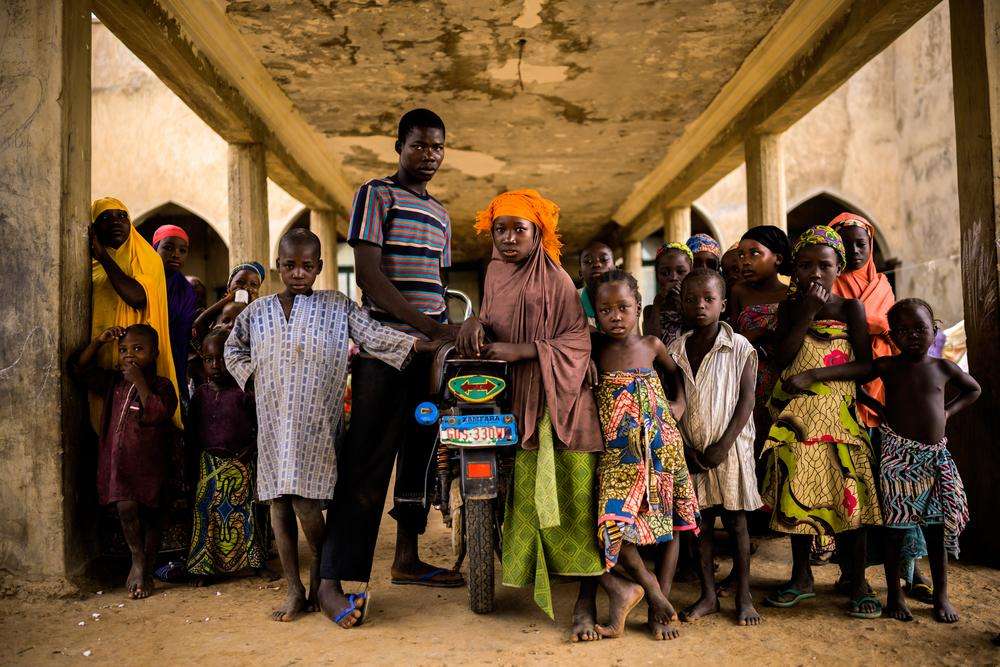NEW YORK, October 21, 2019—Criminal groups and extreme violence in Zamfara state, northwestern Nigeria, have caused tens of thousands of people to flee their villages, leading to malnutrition and exacerbating other health needs in an already impoverished region, the international medical humanitarian organization Doctors Without Borders/Médecins Sans Frontières (MSF) said today.
With farms abandoned, a nutrition crisis looms large in Zamfara. In the town of Anka, where many of the displaced have gathered, MSF runs a 135-bed pediatric ward at Anka General Hospital, primarily treating children for malaria, malnutrition, or respiratory tract infections. From January to September, MSF teams treated 7,445 children for malnutrition in Anka.

"The high number of children we treat for malnutrition in Anka has worrying implications for the situation in the rest of Zamfara state," said Valerie Weiss, an MSF physician who supervises the hospital's high-dependency unit. "With such high numbers here in Anka, we also have to expect many cases of malnutrition in areas where we cannot go due to security concerns."
It is also the rainy season in Zamfara, which causes a peak in malaria cases. Because the hospital is running at full capacity, children often have to share beds.

At other locations in Anka town, an MSF team conducted thousands of medical consultations for displaced people from May to September and distributed cooking and personal hygiene items to about 1,000 families. MSF is now providing primary health care in a stony field that was planned to be the site of a palace for a traditional leader, the Emir of Anka, but is currently a displacement camp.
"People here have lost everything," said Anja Batrice, an MSF physician in Anka. "The deadly attacks forced them to flee their villages, leaving all their belongings behind. Now they live in makeshift shelters and school buildings."

The few functional hospitals to the north, in Zamfara state, are overwhelmed by the number of patients and the lack of basic medical supplies. Most of the region's remote villages have been made inaccessible by the ongoing violence, and primary health care is severely disrupted.
In September, MSF teams conducted an emergency assessment in Zumri and Shinkafi, two areas that have been particularly affected by violence. In one day, the team found 73 children suffering from acute malnutrition in Zumri, including eight with medical complications. MSF is working with the local health authorities to start providing emergency nutrition support in both locations.

MSF started working in Zamfara in 2010 to care for young children who suffer from lead poisoning, which is linked to artisanal gold mining in their communities. In recent months, however, the threat of abductions and robberies has made it impossible for MSF teams to travel to remote villages to reach patients. Now, families bring children with lead poisoning symptoms to Anka, often traveling through insecure areas at great risk.

While many of the displaced people in Anka belong to the Hausa ethnic group, some families are members of the Fulani ethnic group, who herd cattle and are often nomadic. Thirty-year-old Amina Alh Shehu, a Fulani woman, is staying in a ruined building in Anka with her children. They were forced to flee their village more than three years ago, and the violence has worsened since then.

One of the daughters of Amina's husband was abducted when she returned to their village to give birth to her first child. "She was seven months pregnant when armed gunmen abducted her," Shehu said. "We had to pay 1,000,000 Naira [about $2,760 US] in ransom. We had to sell a lot of cattle to pay it. Our cows, goats, and chickens used to be our security for the future—if something bad happened, we could sell them. Now we don't have that security anymore."
With the main source of her family's livelihood gone, Shehu now struggles to feed her children. Her youngest, the twins Hassana and Husseini, were born five months ago. MSF already treated Husseini for acute malnutrition at Anka General Hospital, and he was eventually discharged. However, feeding the two babies is still a challenge. "I don't have enough breastmilk for both children," Shehu said. "Now I buy infant formula, which is very expensive."





